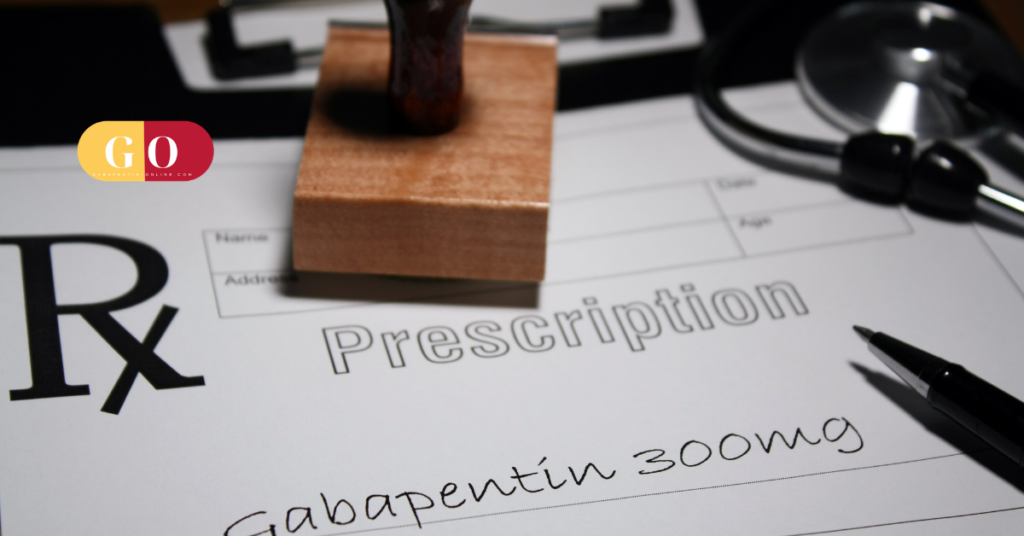Overview:
Gabapentin 100 mg is a medication that relieves nerve pain (neuropathic pain). It can be used for various conditions such as diabetes, shingles, spinal cord injury, and herpes zoster infection. You can also use it to treat seizures (fits) when combined with other medications.
Gabapentin 100 mg:
This tablet is part of the anti-epileptic medication group. It can be taken with or without food. However, it is essential to take the medicine every day at the same time to reap the maximum benefits. Your condition and your response to treatment will determine the dosage and duration of treatment.
The doctor will likely start the medicine slowly and gradually increase it. The medicine may not work for several weeks. Follow the instructions of your doctor and continue to take it until you are advised to stop.
Gabapentin 100 mg is safe for most people. The most common side effects include feeling tired, dizzy, or sleepy. Most side effects do not require medical attention and are not considered serious. If you are concerned about side effects talk to your doctor.
Gabapentin 100 mg should be discussed with your doctor before you start Gabapentin 100 mg Tablet. For these people, your doctor may recommend a different dosage. Before using this medication, women who are pregnant, nursing, or intending to get pregnant should consult their doctor.
Uses:
Gabapentin can be used in combination with other medications to control and prevent seizures. Gabapentin can also be used to treat nerve pain after shingles, a painful rash caused by herpes zoster infection. Gabapentin can be used as an anticonvulsant and antiepileptic drug.
As directed by your doctor, take this medication with or without food. The dosage is determined by your medical condition and treatment response. The dosage for children is also determined by their weight.
Follow your doctor’s instructions. Your doctor may increase the dose gradually over the first few days to help your body adjust to the medication. Take the first dose at night to minimize side effects.
Gabapentin comes in different forms. You should not change from one form of gabapentin to another without consulting your doctor.
If your condition doesn’t improve or worsens, tell your doctor.
Side effects:
What are the side effects of gabapentin and how can they be avoided?
These symptoms should be reported to your healthcare provider immediately.
An allergic reaction sign:
Contact your healthcare provider if you experience a skin rash, itching, blistering, or peeling skin, with or without fever.
If you experience difficulty breathing, swallowing, wheezing, or swelling in your mouth, nose, throat, eyes, mouth, or tongue, contact your healthcare provider.
Changes in mood and behavior:
For suicidal thoughts, thoughts about death, suicide attempts, or new or worsening depression, anxiety, irritability, or feelings of agitation, call your provider immediately.
Your provider should be contacted if you have trouble sleeping, panic attacks or feelings of anger, impulsive behaviors, excessive activity or talking, changes in mood, confusion, inability, or memory problems. These can all be side effects of medication.
Signs of liver problems:
You may notice yellowing or discoloration of the skin, whites of your eyes, or dark urine.
Signs of kidney problems:
You may notice signs of kidney dysfunction such as difficulty urinating, changes in the amount of urine passed, blood in your urine, or weight gain and swelling of the legs and feet.
Other abnormalities that are concerning:
You may notice a change in the color of your skin, such as a bluish tint on your lips, nails, fingers, and toes, along with extreme fatigue, weakness, and unanticipated muscle pain.
Common side effects of gabapentin:

- Dizziness
- Headache
- Nausea and vomiting.
- Recurring infections
- Memory loss
- Weight loss
- Movement problems: coordination problems, being unsteady, tremors, jerky movements.
- Eye problems: unusual eye movements, double vision.
If side effects persist, consult your healthcare provider.
SAFETY ADVICE
Alcohol -Unsafe
Gabapentin 100 mg Tablets can cause excessive drowsiness when taken with alcohol.
Pregnancy -CONSULT YOUR DOCTOR
Gabapentin 100 mg is not recommended for pregnant women. While there have been limited human studies, animal studies have shown that Gabapentin 100 mg Tablets can cause harm to the baby’s developing brain.
Before prescribing these medications to you, your doctor will weigh the potential benefits and risks. Talk to your doctor.
Breastfeeding – SAFE IF PRESCRIBED
Gabapentin 100 mg is safe for breastfeeding. The drug poses no significant risk to the baby, according to limited human data.
Monitoring the baby for excess sleepiness or weight gain should be done.
Driving -UNSAFE
Gabapentin 100 mg can decrease alertness, reduce vision, or cause dizziness. If you experience these symptoms, do not drive.
Kidney – CAUTION
Patients with kidney disease should not take Gabapentin 100 mg. Gabapentin 100 mg Tablets may need to be adjusted for dosage. Talk to your doctor.
Liver – CONSULT YOUR DOCTOR
Gabapentin 100 mg is not recommended for patients suffering from liver disease. Talk to your doctor.
What is Gabapentin?
Gabapentin, also known as gamma-aminobutyric acid (GABA), analog, is a prescription medication. GABA decreases excitability in nerve cells (neurons), which is important for seizures and the transmission of pain signals. Gabapentin mimics GABA’s effects by calming anxious neurons.
Gabapentin belongs to a group of medications known as anticonvulsants.
What are the brand names of Gabapentin?
Gabapentin can be purchased as both a brand-name product and a generic product. Generic products are chemically identical but usually less expensive than brand-name products. Gabapentin is also known by the brand names Horizant, Gralise, and Neurontin.
What if you forget to take Gabapentin 100 mg tablet?
Gabapentin 100 Tablet should be taken as soon as you remember. If it is near the time for the next dose, skip the missed dose. You can then resume your normal schedule. Do not increase the dose.
Does Gabapentin come in a 100 mg tablet?

Gabapentin capsules. You can buy it as 100, 300, or 400-milligram gelatin capsules (Neurontin and generic gabapentin). Gabapentin extended-release tablets, 300- to 600-milligram (Horizant), and Gabapentin.
How many gabapentin 100 mg can I take in a day?
Children 12 years old and older: 300 mg (mg) three days a day for adults and children. Your doctor will adjust the dose if necessary and you are able to tolerate it. The recommended daily dose is 1800 mg (600 mg three times daily).
How does 100mg of Gabapentin make you feel?
Gabapentin may cause feelings of calmness, relaxation, and euphoria. Gabapentin can cause a similar high to taking a stimulant, according to some users. You may also experience euphoric effects similar to heroin or other opioids. This can increase your risk of getting high from gabapentin.
Do I need a prescription for Gabapentin?
Gabapentin can be used as an anticonvulsant. This medication is only available with a prescription from your doctor. You can buy this product in the following forms: Capsules, Tablets.
Can I drink alcohol while taking Gabapentin?
Gabapentin should not be taken with alcohol. Gabapentin can cause dizziness or sleepiness if you drink alcohol.
Can I take Gabapentin if I’m pregnant or thinking of becoming pregnant?
Gabapentin may cause harm to your unborn baby, but it is not known. Talk to your healthcare provider immediately after you become pregnant. Your healthcare provider and you will decide if gabapentin should be taken during pregnancy.
Does Gabapentin pass into breast milk?
Gabapentin can be absorbed into breast milk. Talk to your healthcare provider if you are breastfeeding or plan to breastfeed.
Is Gabapentin addictive?
Gabapentin does not cause addiction, but it can be misused. Only a few studies have shown gabapentin abuse and misuse.
We hope you find this article helpful enough to understand the positive and negative effects of Gabapentin, as well as the important information about side effects.
By subscribing to our newsletter and liking us, you can also access more articles. Please leave feedback below in the comments section.
Thanks…





